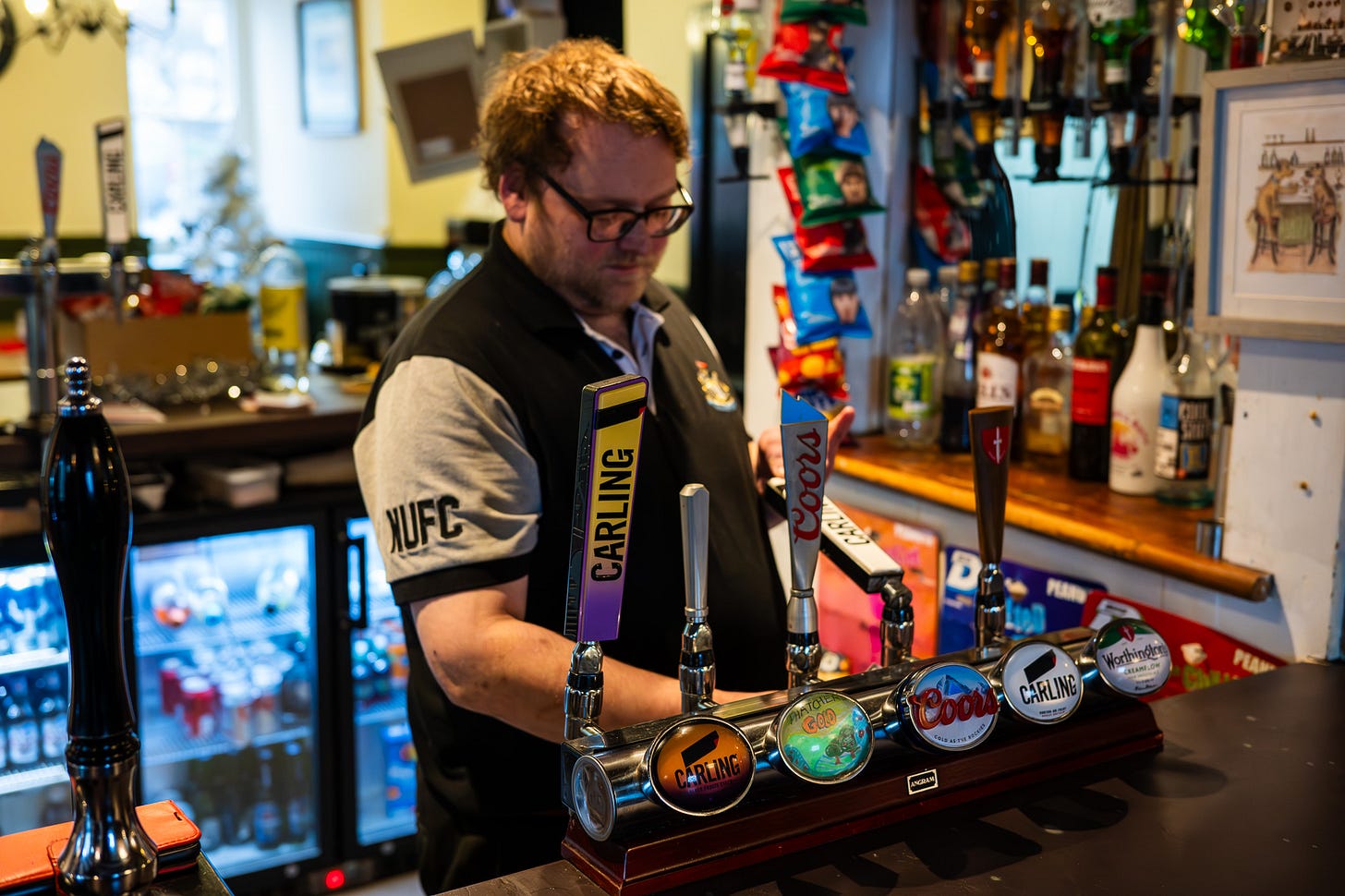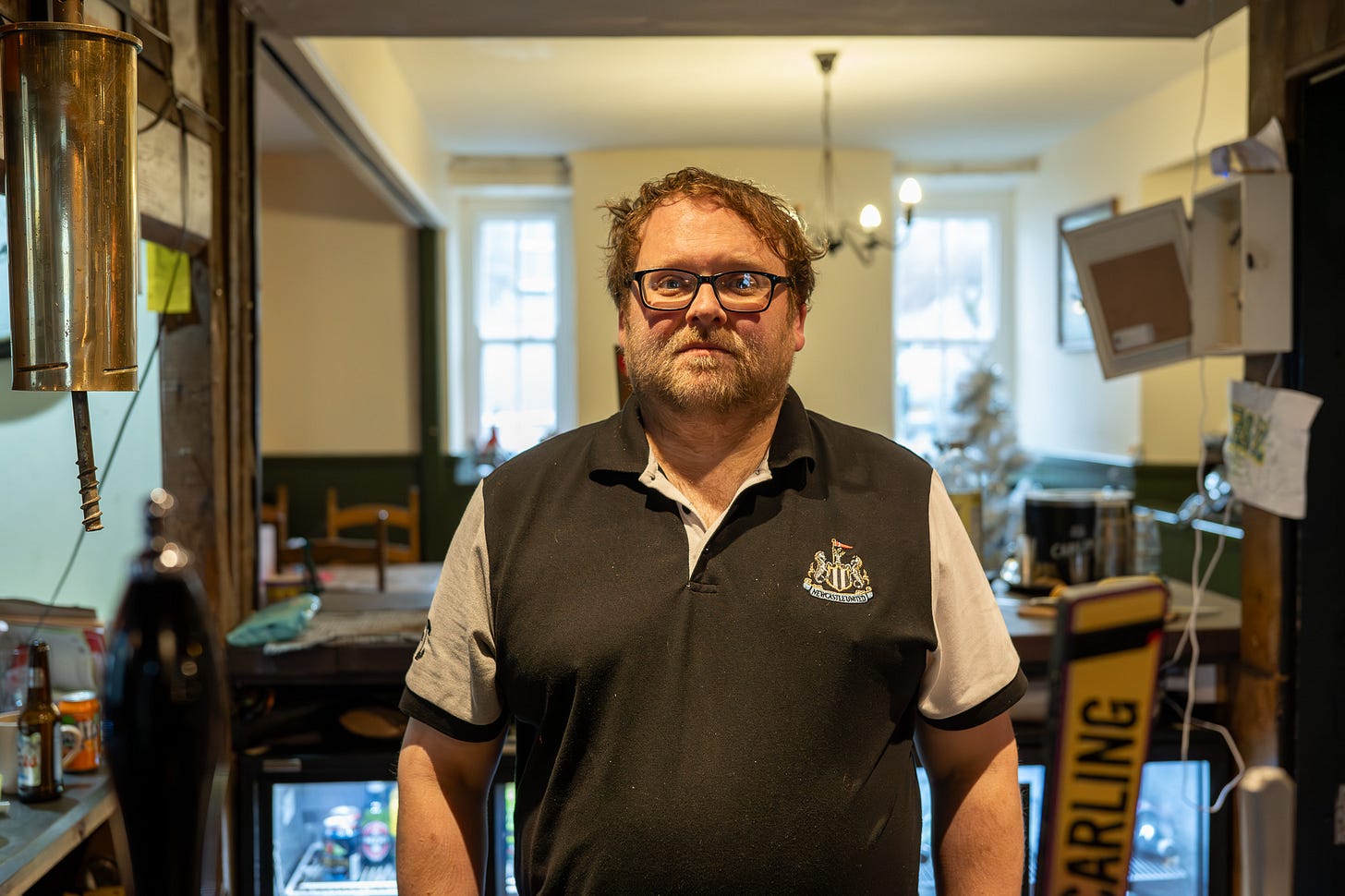"It's bloody hard. It's really, really hard," he said while pulling the pint of Carling.
It was about 2 pm when we met Peter. We were on our way back from a short hillwalk, driving through the Welsh countryside in search of a pub. After a few dead ends, we passed by Y Gwydyr.
It must have just opened. The pub was cold, but two small wood stoves were starting to show signs of life. Only the three of us were in the pub - me, Steph, and Peter. He was kind, talkative, and maybe a little surprised to see a couple of Americans in the pub mid-afternoon.
Carling and Coors are on tap right now. He doesn't keep any cask ales on during the winter. Plenty of bottles, though. And some cider.
Carling it is.
So, what's it like running a pub?
His answer caught me off guard. You hardly ever get such an earnest reply straight away. Especially when the question comes from two strangers you met 30 seconds ago who are clearly not from the area.
"It's bloody hard. It's really, really hard."
So what happened? What killed the pub?
The pandemic was at the top of his list - everything changed after that. People stopped going out, forced closures, inconsistent regulation - things we’re all too familiar with now. Sure, some pubs got assistance, but the distribution varied widely. And even then, it still wasn't enough.
Then came the soaring energy and food costs. The entire pub-related supply chain got more expensive overnight. People and pubs racked up energy bills and debt to keep the lights running. Of course consumption patterns changed. They had to change. Why go to the pub and spend ~$7 for a pint when you can get a case from the grocery store?
It was everything all at once - which feels like the refrain of the 2020s so far.
A few minutes into the conversation, he reached down into the fridge, grabbed a Coors, and popped the cap.
After a few of these conversations, I imagine an obvious question is starting to percolate - why do it? Why not do something else?
I think the answer we might want, the one we romanticize, is love. They love running pubs so much it brings them enough joy to deal with all the other bullshit. Being a publican is the family trade. It’s in their blood.
And there might be a hint of that.
But the reality is much colder - there aren't many other options. Peter has a wife and three kids. Dave from Eagle Ale House also has a family. What should they do, leave the pub and find a new gig? Where do they go? How does one change industries? And many publicans still live in the guest house above the pub, meaning they (and their families) would have to find a new home, too.
It reminds me somewhat of the argument we see from my side of the U.S. political aisle regarding fossil fuel jobs - why not just work at a wind farm? Or be a technician on solar panels? Surely you can do that tomorrow, right?
Sure, I'd like to think that, too. I mean, I did think that. It's a nice, convenient answer that rolls off the tongue a little too easily. But it's just not reality. This isn't some tech job in Seattle, moving widgets around on a screen, where we can copy and paste our way into another company, moving the same widgets around on a different screen.
It takes decades and generations to make changes of that scale.
We like to think of humans as these adaptable, malleable creatures. And we can be when given a fair shot. But it feels like malleability is becoming increasingly the domain of the few.
So maybe the better question is, should it be this hard to survive?







Interesting to hear that it is so hard to run a pub, and good that you point out the difficulties in "just changing jobs", and finding a new place to live if they did so.
I was surprised to see Coors in the photo- is it the same crap we have here?
Hi Skyler, I’m just joining you on this journey. Will you be able to keep in touch with the pub owners and report back as to where they end up?